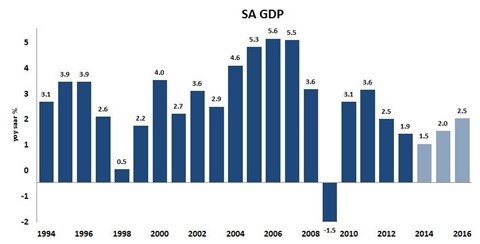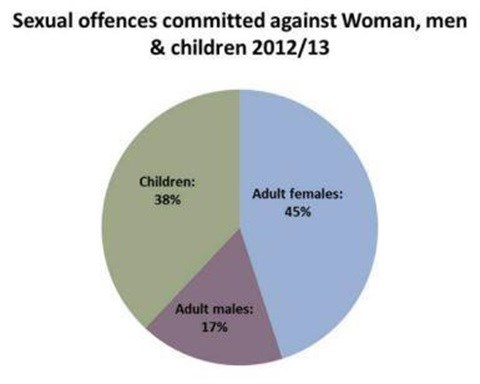





The aim is lofty: total eradication of sexual and domestic violence. This might seem unrealistic in attaining, but as a goal, we cannot settle for anything less, and the time has come for the public and private sector to come to terms with the fact that the financial responsibility for prevention, awareness, response and support Initiatives lies with each of us. We are going to have to begin to spend serious money on this fight and consider the costs and ultimate benefits to us all, not only in monetary value, but in the social well-being and growth of our country as a whole.
Tears is one such organisation. It aims to be an agent of transformation for all aspects for education about rape and sexual abuse in order to promote positive change in societal values and attitude, where the right to say "no" is upheld as a basic human right; where victims of rape and sexual abuse are treated with empathy and dignity; where access to legal, medical and psychological support is easily available to each and every meme roof society, regardless of gender, race or economic status.
According to the Human Rights Dialogue by the Carnegie Council on Ethics and International Affairs, violence against women exists in numerous forms and has been described as the most extreme expression of the gender inequality that underscores social relations in South Africa.
The absence of direct funding for the prevention, awareness response and support of domestic violence in South Africa's budget affects a company's bottom line - CSI needs to be incorporated as part of a company's budgeting process. Business and public service organisations cannot afford to ignore the effects of trauma, violence and crime on their employees. The costs are too great. Morale, attendance, sick leave costs, personnel turnover, management-employee relationships, productivity, service delivery, profits - all are affected. In February, Angie Motshekga said in a letter commending the Foundation that "the issue of rape in South Africa is a serious one and we are excited to partner with Tears to try and find ways to assist the victims of this extremely violating act of crime that seems to plague our country."
The World Bank places South Africa's Gross Domestic Product (GDP) at $350,6bn for 2013. At the present exchange rate, that is R3,7tn (R3,748,001,324,308.06). The current GDP forecast as provided by Efficient Group should fall between 1.3% and 1.6% for 2014 with market consensus leaning towards 1.8%. It is important to consider the size and growth of GDP as the cost of abuse is represented as a percentage of GDP.

The cost of domestic abuse averages at approximately 5% to 10% of the GDP, conservatively estimated by the Efficient Group. This is approximately R200bn per annum.
Tears' first level of assistance is a mobile portal. This mobile portal works on a basic feature phone and is available to users who do not have access to the mobile internet. As such, Tears looked first to USSD - Unstructured Supplementary Service Date - which offers a simple menu but session based system. This mimics a mobi site but will work on all mobile phones. The Tears helpline number (*120*7355#) connects survivors of rape and abuse via a database developed and researched by Tears to appropriate quality care facilities, i.e. counselling, hospital, SAPS etc. Also see a document from KPMG: Too costly to ignore - the economic impact of gender-based violence in South Africa.
They can support the development of mechanisms for coping with the result of trauma. For many, violence is a way of life. It is a form of continuous stress which does not revolve around one incident and which affects whole communities of people. This is a long- term investment in the future by contributing other development of communities in which it operates the organisation creates future consumers and employees.
While it is not always clear what falls under which budget item, nor how the funding is appropriated and whether or not it is efficiently spent, one can deduct from these that domestic and sexual violence against children, adult women and adult men, impact budget items "social protection" and some of the healthcare-related items.
Through the tax benefits of CSI initiatives, the 18A tax deductible donations to public benefit organisations and the BEE scorecard incentives of social and enterprise development, ways have been made for the private sector to fund non-governmental initiatives that deal with some of social and socio-economic challenges of the country. NPOs can benefit from funding, while the corporates benefit in through tax benefits.
However, just as government is not specifically budgeting for the prevention and response to domestic and sexual violence, nor the support and empowerment of victims of the crime, these have also not been prioritised thus far as goals and CSI mandates.
Percentages are not available, but it is clear that many corporations choose to take on education, job creation, HIV, the environment and other social challenges as their CSI initiatives of choice.
The question that needs to be asked is "How and to what extent does sexual and domestic violence affect my company's bottom line?" While it is difficult to estimate the number of incidences of sexual and domestic violence, as they are not all reported, as most other crimes are, it is also difficult to estimate the percentage of occurrences as opposed to reported occurrences. Some service providers put that number as high as 20 to one (such as Nicro), while others say of 10 incidences of sexual and domestic violence that only one is reported. Should we opt for averages and include rape of women, men and children with domestic violence, one could safely assume that the number of incidences exceed one million per year, as there are 64,000+ reported cases of rape alone per annum.
So how does sexual and domestic violence affect a corporation's bottom line?

Further, a study done on the cost of intimate-partner abuse in Canada estimates the cost at roughly 0.4% of GDP, similar studies have been done for developing countries like Vietnam (1.4% of GDP). Assuming the same cost structures are employed in South Africa and simply adjusted for the amount of reported cases the cost of domestic abuse on the South Africa economy can be inflated above 5%. Supporting this estimate is the additional cost of domestic violence on the well-being of individuals in South Africa. A study in the Journal of Applied Public Economics (Volume 34, Issue 3, 2013) estimates the cost of domestic violence on the well-being of individuals living in the UK is up to 10% of GDP. Once again with a lack of in-depth-research one can only assume the same cost structures and adjust for the amount of reported occurrences between the two countries; UK and SA, in which case 10% of SA's GDP is even more realistic and might even be too conservative.
There are many other ways in which this scourge is affecting your company and perhaps it has never been openly discussed, but the time to do so has come.
Tears is growing and we need your help.
For more information about this article, please contact Francois Stofberg at EF Group on 012 460 9580 or Mara Glennie, Founder of The Tears Foundation on 082 448 9324 or email az.oc.sraet@aram.